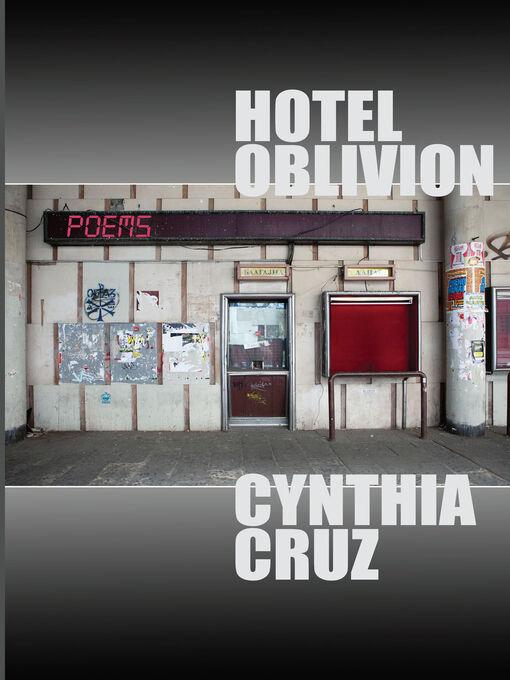A specter, haunting the edges of society: because neoliberalism insists there are no social classes, thus, there is no working class, the main subject of Hotel Oblivion, a working class subject, does not exist. With no access to a past, she has no home, no history, no memory. And yet, despite all this, she will not assimilate. Instead, this book chronicles the subject's repeated attempts at locating an exit from capitalist society via acts of negative freedom and through engagement with the death drive, whose aim is complete destruction in order to begin all over again. In the end, of course, the only true exit and only possibility for emancipation for the working class subject is through a return to one's self. In Hotel Oblivion, through a series of fragments and interrelated poems, Cruz resists invisibilizing forces, undergoing numerous attempts at transfiguration in a concerted effort to escape her fate.
- Available now
- All EBook Titles
- New eBook Additions
- New kids additions
- New teen additions
- Most popular
- Try something different
- Stephen King
- Books in Chinese
- See all ebooks collections
- Available now
- All Audiobook Titles
- New kids additions
- New teen additions
- Most popular
- Try something different
- See all audiobooks collections

